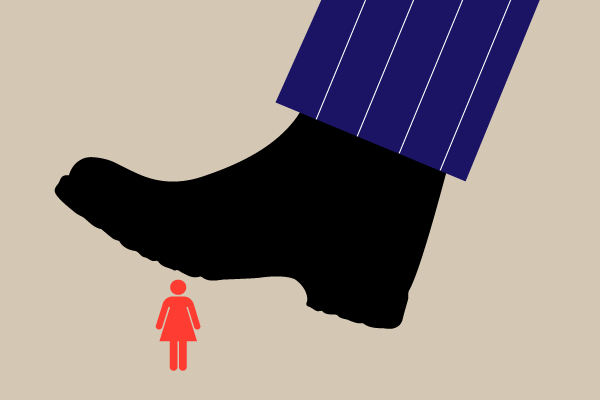
Brands must speak out about violations in Cambodia
Labour rights organizations are deeply concerned about the closing of democratic and civil society space in Cambodia. This trend has recently escalated with alarming high-profile incidents of repression against political leaders, non-governmental organizations, and independent media. Clean Clothes Campaign, Worker Rights Consortium, and International Labor Rights Forum are calling on multinational apparel companies sourcing from Cambodia to take a stand against this repression, and to urge the Cambodian government to respect human rights and labour rights.
Cambodia's garment and footwear sector is worth US$6.8 billion, accounting for 80% of the country's total exports and employing some 700,000 workers.
"Big brands can and must use their leverage. They are profiting from doing business in the country, and if they want to claim to be doing so responsibly, they need to put principles into practice. Without basic freedoms and a government that respects human rights, workers and trade unions, the garment sector will suffer", says Judy Gearhart, Excecutive Director of the International Labor Rights Forum.
Says Ben Vanpeperstraete, Lobby and Advocacy Coordinator of the Clean Clothes Campaign, "Despite the deteriorating situation, it is essential that brands continue to stay engaged in Cambodia and uphold and defend the rights of the workers producing their garments. They should insist that the government respect the fundamental rights of all people. "
The labour rights organizations are urging brands sourcing from Cambodia to take the following actions:
- Make a public statement firmly expressing their concerns about the increased repression and closing of democratic and civil society space in Cambodia.
- Engage directly with the Cambodian government to stress the importance of a political and industrial relations environment consistent with international conventions and standards.
In addition, given the passing of a Trade Union Law in 2016 that severely restricts the rights to freedom of association and collective bargaining, brands are urged to take specific measures – both individually and jointly - to ensure that these rights are respected in their suppliers in Cambodia.
Says Jessica Champagne, Deputy Director for Field Operations and Strategy of the Worker Rights Consortium, "Unless the brands speak up loud and clear, we fear that the work of Cambodian trade unions, labour rights NGOs and other civil society organizations will be significantly impaired. This will have a negative impact in garment workers' ability to raise workplace concerns and advocate for improvements. We are already seeing the erosion of the hard-won gains that workers and advocates have achieved in the last 10 years."
Background
Democratic and civil society space has been increasingly curtailed by the Cambodian government over recent years. In the last several months, there has been an alarming escalation of this trend.
1/ The arrest of opposition party leader Kem Sokha:
Kem Sokha, Cambodia's opposition leader and President of the National Rescue Party (CNRP) was arrested on the 3 rd of September and charged with treason and conspiracy to oust the ruling regime. If he is found guilty, the party could be dissolved based on new legislation that prevents party leaders from having a criminal conviction. The use of the judicial system to silence opposition is a serious threat to real democracy in Cambodia.
2/ Non-governmental organisation shut down:
On the 3rd of August the Cambodian government authorities instructed the US-funded National Democratic Institute (NDI) to immediately cease its operations in Cambodia and close its office, alleging the organisation had failed to register under the national NGO law (LANGO) and had not paid the corresponding taxes. This law had already been widely criticized by local and international organizations, UN experts and other members of the international community, on the basis that it was designed to target specific organisations.
3/ Silencing of independent media:
- The opposition-aligned Mohanokor radio station, the independent Voice of Democracy (VOD), and local broadcasts of Radio Free Asia (RFA) and Voice of America (VOA), have all been taken off the air. In late August 2017, Cambodian authorities ordered the closure of 32 FM radio frequencies across 20 provinces. RFA and VOA also face arbitrary and targeted licensing and tax investigations which could force their complete closure.
- The Cambodia Daily, an independent English-language newspaper which has operated for 24 years, was forced to close on the 4th of September. Three weeks prior, government authorities accused the newspaper of not having paid back taxes in the amount of US$6.3 million, and gave the newspaper an ultimatum: pay up or shut down. The Cambodia Daily is an independent outlet renowned for critical investigative reporting on sensitive topics such as corruption, waste, environmental issues and land rights.
For workers and their advocates, this has meant an increasingly adverse environment for sound industrial relations and workers' rights. In 2016, the Government of Cambodia adopted the Trade Union Law imposing new limits on the right to strike, placing increased bureacratic burdens on union regisration, bringing government intervention into internal union affairs, and permitting third parties to seek the dissolution of trade unions. The law also reduces fines paid by employers for labor violations, while increasing financial scrutiny of trade unions. The Trade Union Law law has also effectively served to undermine and limit the Arbitration Council, a key avenue for garment workers to resolve labour disputes. Since the law passed, there has been a dramatic decrease in the number of cases brought before the Council.
